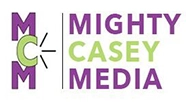If you’ve been paying attention, you know that yours truly got the chance to attend the annual Cochrane Colloquium in Edinburgh in September this year, thanks to a travel stipend from SPM, a #PatientsIncluded bursary from Cochrane UK, the hosts of the 2018 Colloquium, and a stipend from the NHS for the #BeyondTheRoom project to help cover the event for the global audience. And I’m sure there are a good number of you who are still thinking, “That’s great, but what the heck is Cochrane? And how did they get to be the ones running the ‘Hogwarts Sorting Hat’ of global medical evidence?” Forgive me, but I’m a comedy writer, and that breaks through from time to time, no matter how hard I try to stifle it. Anyway, Cochrane is named for a Scottish doctor, Archibald Leman “Archie” Cochrane, who wrote “Effectiveness and Efficiency: Random Reflections on Health Services” (the link will let you download the whole book in PDF) in 1972. Archie Cochrane advocated for randomized clinical trials (RCTs) for, well, everything – treatments, practice methods, research protocols, an “all of the things” approach, on a loop – which was not how medicine was being practiced under the prevailing “doctor knows best” practice model in place across the globe. “The art of medicine to preserve autonomy, the science of medicine to preserve authority” rules pointed out by many people seeking to make medical science more science than “because it’s how I do things” – those rules have been snarked at by both your correspondent, and Dr. Al Mulley at Dartmouth, among a host of others. Archie Cochrane influenced the thinking, and practice, of many other clinicians with his thought leadership on practice variation, practice standardization, and the use of RCTs to fine tune medical science. One of the people he influenced was Iain Chalmers, who, in 1993,…
Image from Twitter user @Rasha_Fadlallah This will be the third, and last, in my short series on attending the Cochrane Colloquium in Edinburgh in September of this year. In the first post, I talked about what that conference was like; in the second, I shared an overview of Cochrane as a global movement to make medical evidence work better for clinicians, patients, and communities around the world. This last one will talk about some of the issues Cochrane is facing, as an organization and as a proponent of science in a world that seems to have a rising suspicion of science and research. I watched the Cochrane Colloquium open not just with a welcome to Edinburgh – although there was that, in spades – but with a behind-the-scenes PR flame war that wound up sucking up the the headline space for Cochrane that week, and in the weeks since. I talked about it in my podcast the following week, and have watched the conversation go by since my first day on the ground at the Edinburgh International Convention Center. The short-snort version of what happened is this: On September 14, the Friday before the Cochrane Colloquium was to kick off (on Sunday the 16th), a letter went up on the Cochrane Nordic Center site’s News page from Dr. Peter Gøtzsche, wherein he announced that he had been expelled from the Cochrane governing board by a slim majority vote by that board. He cast it as a moral crisis, caused by Cochrane’s too-chummy relationship with the pharmaceutical industry. That letter has since disappeared from the Cochrane Nordic pages, the link is to a PDF on the Mad In America site. Cochrane itself stayed silent for 24 hours, putting up its response to Gøtzsche’s letter late on Saturday, referencing only an independent review of “complaints related to…



